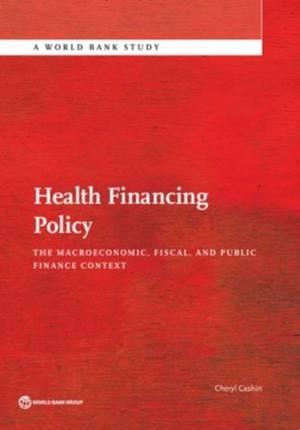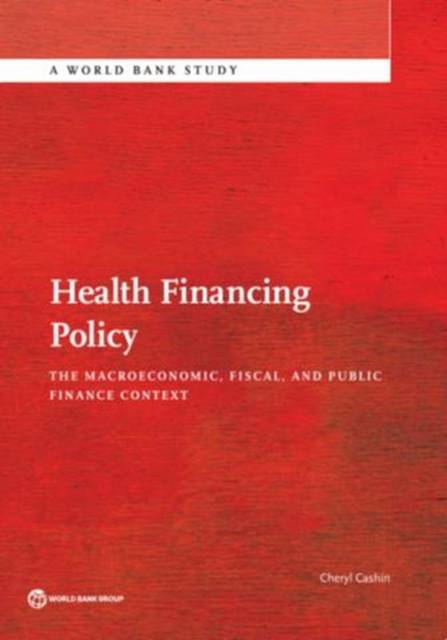
- Retrait gratuit dans votre magasin Club
- 7.000.000 titres dans notre catalogue
- Payer en toute sécurité
- Toujours un magasin près de chez vous
- Retrait gratuit dans votre magasin Club
- 7.000.0000 titres dans notre catalogue
- Payer en toute sécurité
- Toujours un magasin près de chez vous
50,95 €
+ 101 points
Description
The global movement toward universal health coverage (UHC) is accompanied by requests for large increases in government health spending in some countries. This combined with the global economic situation and stagnant economic growth across many low- and middle-income countries make it more critical than ever to place health financing discussions firmly in the context of macroeconomic and fiscal realities. Unfortunately, there is often a disconnect in decision making, with key fiscal decisions made in the absence of a clear understanding on the one hand of the potential consequences for the health sector, and on the other, the consequences for the country s macroeconomic and fiscal position of increasing or reallocating government spending. Constructive health financing policy dialogue aims to reach a common understanding between health sector leaders and central budget authorities about policy objectives for the health sector and the resources needed to achieve those objectives, how much priority will be given to health in the government budget, and how the health sector will be held accountable for using funds effectively. This common understanding should be built on a realistic picture of the country s macroeconomic and fiscal context, the constraints and competing priorities in the budget-setting process. When ministries of health and ministries of finance have a common understanding of macroeconomic and fiscal constraints, discussions can focus productively on using funds within the potential health resource envelope in the most effective way to achieve health system objectives. This guidance note outlines the key components of the macroeconomic, fiscal, and public financial management context that need to be considered for an informed health financing discussion at the country level. The guidance note is organized around four sets of questions that are key to placing the health financing dialogue in the context of a country s macroeconomic and fiscal context. Each section points to measures, resources, and analytical tools that are available to assist in answering these questions for a specific country. The guidance note draws on case studies from 11 countries moving toward or sustaining universal health coverage conducted as part of the Japan World Bank Partnership Program on UHC as well as from other country examples."
Spécifications
Parties prenantes
- Auteur(s) :
- Editeur:
Contenu
- Nombre de pages :
- 74
- Langue:
- Anglais
- Collection :
Caractéristiques
- EAN:
- 9781464807961
- Date de parution :
- 24-02-16
- Format:
- Livre broché
- Format numérique:
- Trade paperback (VS)
- Dimensions :
- 178 mm x 254 mm
- Poids :
- 149 g

Les avis
Nous publions uniquement les avis qui respectent les conditions requises. Consultez nos conditions pour les avis.






